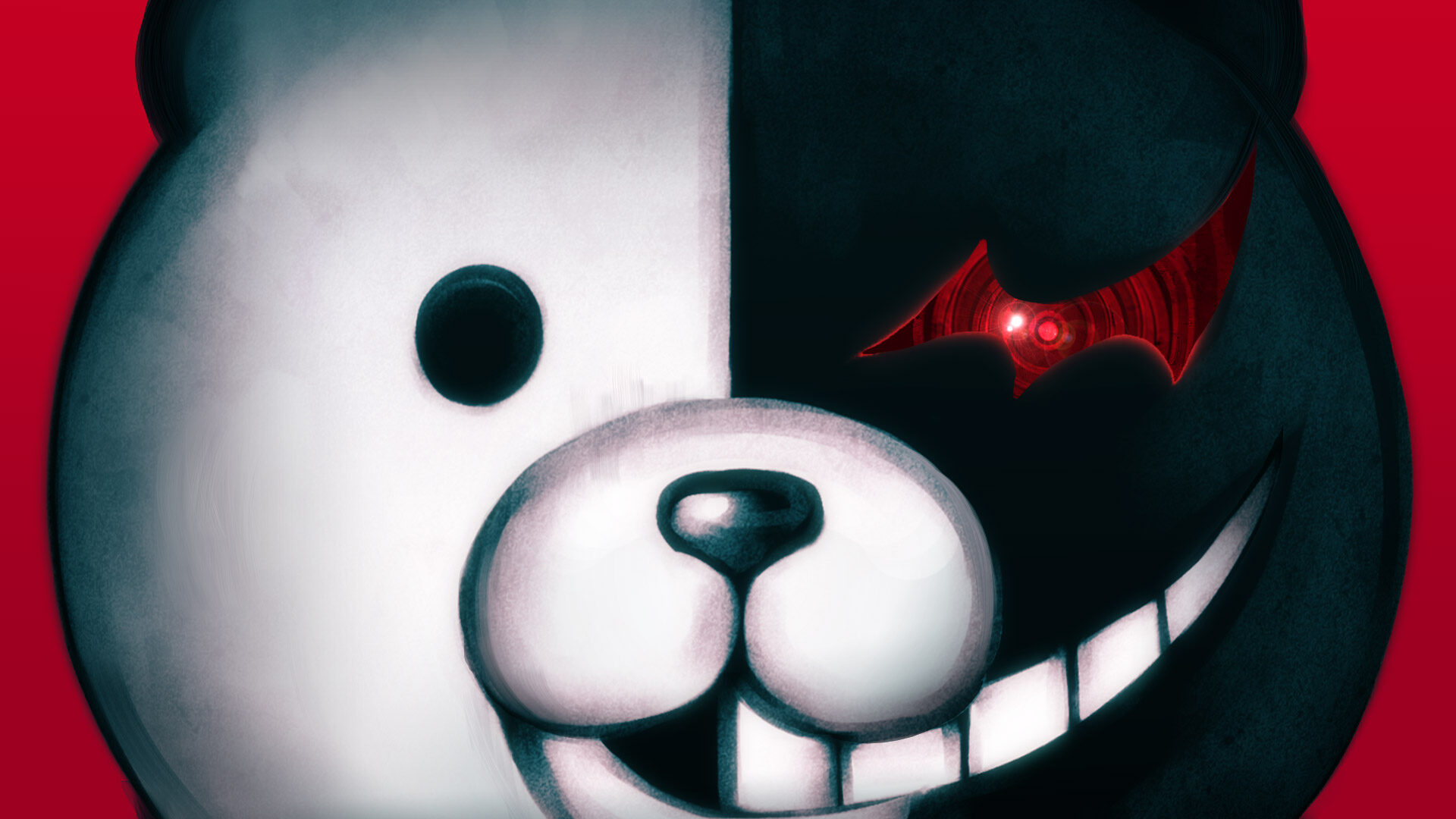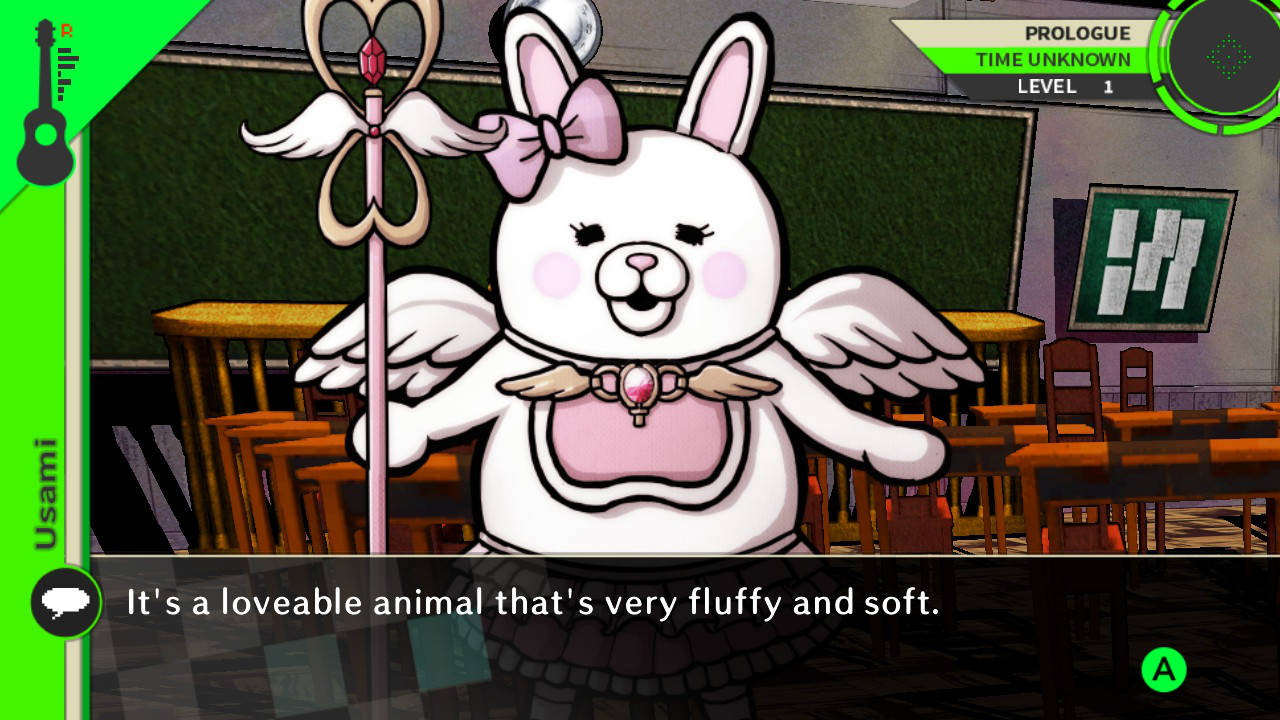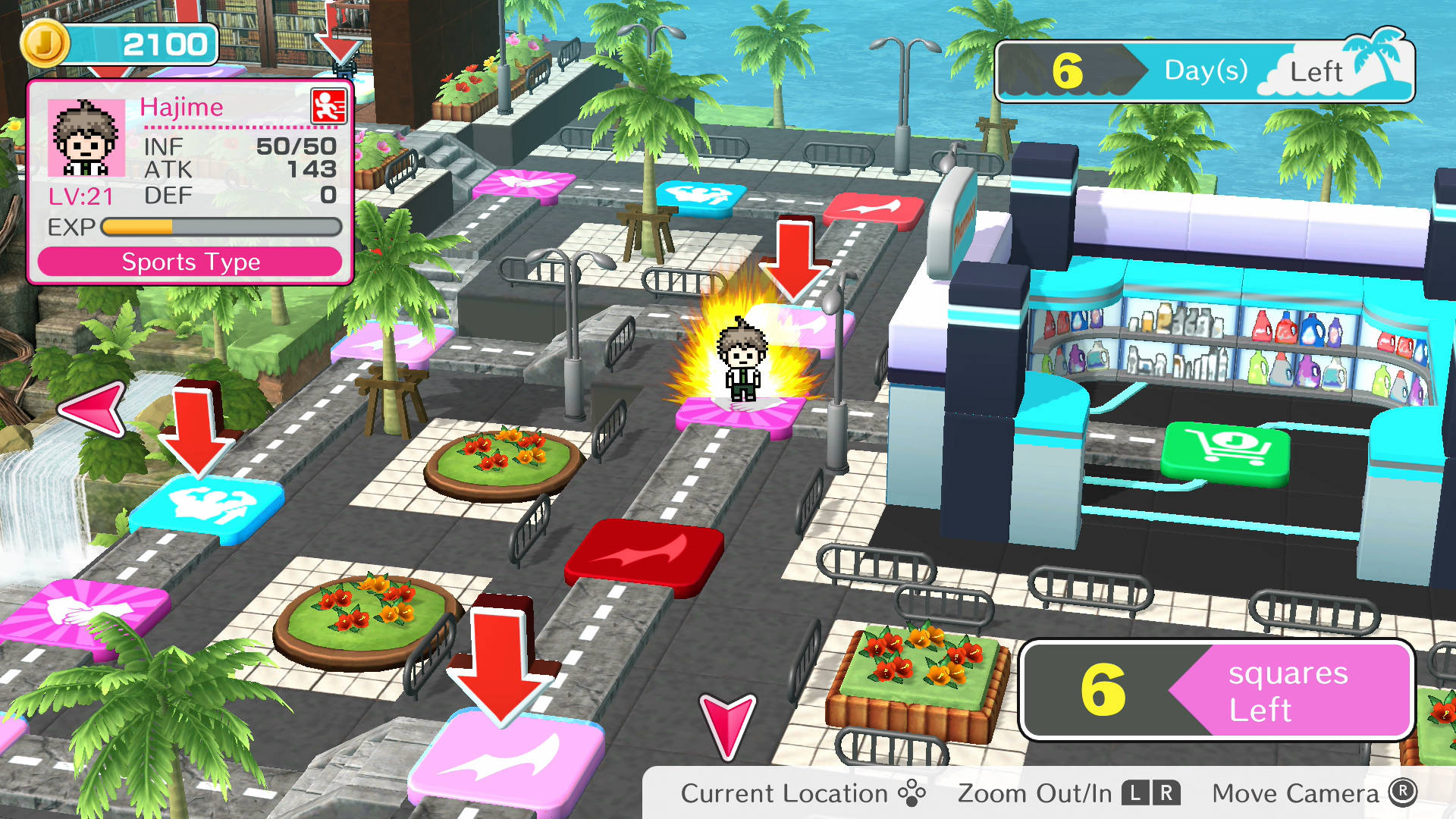Danganronpa Decadence Review
While the PlayStation Vita is often derided or outright forgotten these days, the system was important for the fact that it finally offered a home to numerous PlayStation Portable games that had previously never left Japan. Among those titles was Danganronpa: Trigger Happy Havoc, a deliciously dark tale of 15 high school students forced to kill one another at the whim of a sadistic stuffed bear.
Danganronpa expertly wove together an engrossing story, interesting characters, unique gameplay elements, and some genuinely fun puzzles as you tried to deduce who the latest killer was. The mainline series would see two sequels, Danganronpa 2: Goodbye Despair and Danganronpa V3: Killing Harmony; while they both followed the same basic principles in gameplay and narrative structure, each offered new twists that gave them an identity of their own.
Unfortunately, as much as some of us—including the Danganronpa dev team—loved the Vita, the series would have faded into niche cult classic status had the games not seen ports on other platforms. Fortunately, that has happened, but in each port we’ve received, something’s been missing. Namely, the ability to play the games on a portable device that isn’t a smartphone. Danganronpa was born a handheld experience, and the world deserved to play the franchise that way on a far larger scale.
Enter Danganronpa Decadence, a new collection that brings lovable lunatic Monokuma and his evil schemes to the Switch. Nintendo’s hybrid hardware has become something of a new-era Vita since its launch, as it’s seen ports of many of that platform’s titles and become one of the best places to play visual novels and indie games. Among the Vita releases I’ve wanted to see make their way over to the Switch, Danganronpa was near the top of my list, so getting Decadence has been a long time coming for me.
If you aren’t familiar with the Danganronpa games, trying to properly introduce you to each is too big a task for this review. If you’d like deeper looks at what they are on a core gameplay level, I suggest you go read my individual reviews of both Danganronpa and Danganronpa V3. But let me at least try to quickly summarize the series.
In each game, you’re paired up with 14 other high school students, each of whom has a special talent or personality trait that makes them an “Ultimate” of some sort (such as the Ultimate Baseball Star, Ultimate Detective, or Ultimate Cook). Each group of students think they’re the new freshman class for a prestigious government-sanctioned private school named Hope’s Peak Academy; instead, they’re the latest participants in a deadly game run by a half-white, half-black bear named Monokuma. In order to escape the game, a student not only needs to kill another student, but also get away with it. As murders happen, you must work together with the remaining participants to figure out who the latest killer is, all while having no idea who to trust. If you fail, not only will the killer go free, but the rest of the class will meet their maker as well.
Above anything else, the best part of Danganronpa Decadence is that all three of the games remain amazing experiences to this day. Back when they were freshly released, it was easy to find nitpicks with each or feel that the series might be losing steam, but as the years have passed, I’ve found myself appreciating just how timeless these games remain. While we’ve seen a handful of other releases try to emulate the Danganronpa formula, none have had the same impact as the real deals, and they’re just as exciting to go back to now as they were to play for the first time so many years ago.
In a perfect world, I would tell you that Danganronpa Decadence brings together those three mainline games at their best, and that this is a release no gamer should be without. The problem is, there are two factors with the collection that keep it from being everything it could, or should, have been.
The first is that there’s a glaring omission in Danganronpa Decadence’s line-up: Danganronpa Another Episode: Ultra Despair Girls. The black—or, given the nature of the franchise, perhaps I should say white—sheep of the family, Ultra Despair Girls is an action-adventure spin-off that plays very differently from its siblings. While it’s not necessarily a game you need to play to get the proper Danganronpa experience, it is canon, and its exclusion here makes the collection feel incomplete. I’m pretty confident I know why it’s missing, but we’re not there just yet.
In its stead, we get Danganronpa S: Ultimate Summer Camp, a board game-meets-RPG that builds off of the Ultimate Talent Development Plan minigame from Danganronpa V3. In this non-canonical side story, all of the main characters from across the franchise (including Ultra Despair Girls) come together on a tropical archipelago to have some fun in the sun, get to know each other better, and maybe even develop their Ultimate talents more while searching for Hope Shards.
While Monokuma’s children, the Monokubs, want to help everyone have a good time, daddy has other plans, infecting the islands with a horde of powerful Monobeasts. By rolling a virtual die and traversing the various spaces on the board, you’ll work to make the character you’ve chosen stronger, defeat bosses, interact with other Ultimates, and collect key items. When meeting up with bosses or landing on combat squares, the game switches to first-person battles reminiscent of old-school RPGs.
Danganronpa S: Ultimate Summer Camp is honestly pretty fun if you take it for what it is: a lighthearted adventure added to the collection as a bonus. The board game portion is interesting, the battles are surprisingly challenging, and I can think of worse games to spend 15 or so minutes with. However, if you expect it to be something spectacular, if you put any demands on its totally fluff (and sometimes out of character) story, or if you buy it digitally as a standalone $20 release—which you should absolutely not do—then Ultimate Summer Camp may disappoint.
You also might be in the camp that isn’t happy about Ultimate Summer Camp having microtransactions and gacha mechanics. I can understand that, but I’ve given up on trying to fight that fight a lot of the time, and I never found myself having any desire to spend money to unlock anything here. Well, I mean, I also couldn’t if I had wanted to, as I found no way to get to the real-money options in the prerelease build I played.
According to materials I got from Spike Chunsoft, “All content such as characters, character upgrade cards, and items can be unlocked by playing the game. All characters and character upgrade cards can also be purchased through the MonoMono Machines at the School Store with real-world money.” So long as that is the case, then I’m fine with how things work here, even if it means grinding to earn credits to randomly unlock characters or other cards. Ultimate Summer Camp is something to play when you’ve got time to kill, not something to stress over or sink extensive energy into—and especially not something where you should be thinking about spending real money to get swimsuit unlocks.
I’m less fine with the occasional technical issues I encountered, such as the time my game totally locked up (thankfully after saving). A rep for Spike Chunsoft told me that Ultimate Summer Camp will be getting a patch, so I have to hope those technical issues won’t be a factor soon.
Now, I didn’t forget—I promised you two problems with Danganronpa Decadence, and we’re finally getting to the second one.
I don’t know if Spike Chunsoft has talked about this publicly—in my looking around the internet, I’ve seen no real discussion on the topic—but the versions of the games we get in Danganronpa Decadence seem to be based on the mobile ports. I can say that with confidence for Danganronpa 2, I feel the same is the case for the original game, but I can only assume that for Danganronpa V3, as its mobile port has yet to launch after its delay earlier this year. I also think this is why we missed out on Ultra Despair Girls, as it has no mobile equivalent.
Why do I think this, and why does it matter? Answering the first question will lead into the second, so let’s start there. I’d like to present two screenshots I took from early in Danganronpa 2:
The one on the left is from the Vita, and the one on the right is from the Switch. Against everything I would expect, the Vita version has more world detail (the foreground flowers), while the Switch port strangely lacks textures in the stone arches. Checking that exact same scene on other platforms, both the PlayStation 4 and PC releases mirror the Vita version, while on iOS, both the flowers and those textures are also missing.
There are also some minor performance hiccups that seem inherent to those Unity ports. These issues never really negatively affected my playing of the games, but at times, it felt like camera or movement speed was a tad slower than they should be. Going back to that early area in Danganronpa 2 (since it was an easy place to get to on multiple platforms), I did some very unscientific testing. If I manually walked between gates 1 and 2, it took me 20 seconds on Vita, but 28 seconds on Switch. Meanwhile, if I used the fast movement option, it took 1.16 seconds on Vita, and 1.48 seconds on Switch. Again, this is not concrete proof of anything, but does hint at the idea that the overall games themselves might be running slower than they originally did—all while not giving us the benefit of the touch controls of the mobile ports.
What does this all mean? It means that, both on a technical and graphical level, there are some areas where Danganronpa Decadence isn’t even as good as the original Vita releases, which I can’t help but think really shouldn’t be the case. The bigger question, though, is if that’ll matter in the long run—and the answer might be “probably not.”
Look, as a matter of principle, it sucks that the Switch seems to be getting smartphone hand-me-downs. With the importance of the Danganronpa series and the market share of the Switch, this collection should have been a bigger priority. But, if I honestly ask myself how many people this is going to affect, I can’t imagine it’ll be a lot. For those who haven’t played these games since the Vita days, they’ll probably never notice the occasional downgrade—heck, I almost didn’t. For anyone coming in fresh, they’ll never know what they’re missing. For Switch owners, or anybody who just wants these games on a portable machine with proper controls and buttons, the downgrades won’t get in the way of everything that’s otherwise fantastic about the Danganronpa trilogy. And, if you’re someone who does care, and wants the best versions possible, then stick to the PS4 or PC ports and don’t look back.
In a year when we’ve seen just how wrong using mobile ports as the basis for new console releases of beloved games can go, Danganronpa Decadence comes off looking pretty darn good. Still, though, it could have looked great. My dream of the Danganronpa series coming to Switch is finally fulfilled, and the pure enjoyment those games still offer trumps any minor technical issues they may suffer—but my hope for this collection is now overshadowed by the despair of lingering thoughts of what truly could have been.
Danganronpa Decadence
Summary: Danganronpa Decadence finally brings Spike Chunsoft’s amazing murder mystery series to the Nintendo Switch, accompanied by an all-new bonus game, Danganronpa S: Ultimate Summer Camp. While the latter is fun on a shallower level, the Danganronpa games remain engrossing and engaging experiences that are just as good today as they were back when they originally saw release on the Vita. Well, almost as good, as the ports we get here see reduced visuals or performance at times due to (seemingly) being based on the previous mobile releases.
Score: -
Danganronpa Decadence was reviewed using review code, physical copies, or hardware provided by Spike Chunsoft. Scores are graded on a scale of E (Bad) to S (Special) in homage to Japanese video game grading scales, with the understanding that an S still does not denote a "perfect" score. Scores may have been adjusted from the original source to better fit my personal scale.








